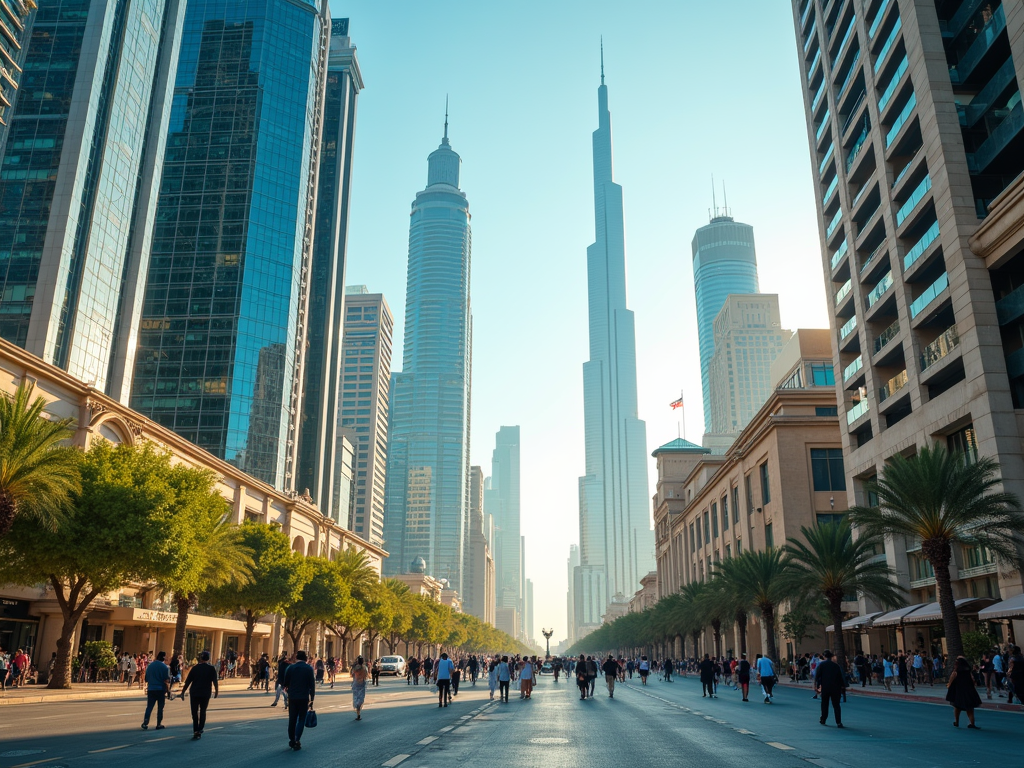Understanding the Role of Dubai’s Government in Business Regulation
BusinessThe government of Dubai plays a crucial role in regulating business operations within the emirate, fostering an environment that encourages economic growth while ensuring compliance with local laws. This article delves into the various facets of Dubai’s regulatory framework, examining the measures enacted to create a stable business climate. The diverse governmental entities in place promote transparency and fairness, ultimately nurturing both local and foreign investments. By understanding these regulations, businesses can navigate the complexities of the market effectively. In this exploration, we will also highlight key regulations, enforcement mechanisms, and the implications of these rules for entrepreneurs in Dubai.
Dubai’s Regulatory Framework

Dubai’s regulatory framework consists of a complex interplay of laws, ordinances, and guidelines designed to promote fair competition and protect consumer rights. The Dubai Economic Department (DED) serves as a key player, managing business licenses and ensuring compliance with operational guidelines. Various sector-specific authorities contribute to this framework, addressing industries such as tourism, real estate, and finance. Additionally, the establishment of free zones has revolutionized the regulatory landscape by offering tailored regulations to attract foreign investment. Understanding these frameworks allows businesses to identify the opportunities and obligations relevant to their operations.
Numerous governmental entities in Dubai are responsible for overseeing business regulation, and an awareness of their functions is invaluable for any entrepreneur. Below are some core entities that play pivotal roles:
- Dubai Economic Department (DED): Provides business licenses and regulates economic activity.
- Department of Tourism and Commerce Marketing (DTCM): Oversees tourism-related businesses and ensures standards in the hospitality sector.
- Dubai Multi Commodities Centre (DMCC): Acts as a free zone, regulating trade, commodities, and related industries.
- Dubai Financial Services Authority (DFSA): Regulates financial services in the Dubai International Financial Centre (DIFC).
- Dubai Municipality: Enforces health and safety standards, particularly in construction and food services.
Each entity has its own set of regulations and compliance requirements, making it essential for businesses to stay informed of updates and changes that may impact their operations.
Enforcement of Regulations

Enforcement is a critical aspect of Dubai’s approach to business regulation, ensuring that all entities adhere to established laws. The government utilizes various methods to monitor compliance, including audits, inspections, and investigations conducted by the respective regulatory bodies. Businesses found in violation of regulations may face penalties, fines, or even license revocation in severe cases. To maintain a competitive landscape, the government emphasizes transparency through licensing processes and encourages whistleblowing on malpractices. Regular training and outreach programs are also held to educate businesses about regulations and compliance requirements.
Implications for Entrepreneurs and Businesses
Understanding the role of government regulation in Dubai is vital for both local and international entrepreneurs aiming to establish themselves in the emirate. Compliance with business regulations can enhance operational efficiency, instill consumer confidence, and ultimately lead to increased profitability. Moreover, engaging in community relations can foster goodwill and create a supportive network for navigating regulatory challenges. However, non-compliance poses significant risks, such as damaging a brand’s reputation or incurring legal costs. Thus, businesses must develop a robust understanding of regulations and engage proactively with government entities to ensure successful operations.
Conclusion
In conclusion, the role of Dubai’s government in business regulation is multifaceted and critically significant for fostering an environment conducive to economic prosperity. From licensing and enforcement to sector-specific regulations, the government is dedicated to maintaining a level playing field for all businesses. Entrepreneurs should view these regulations not as obstacles but as essential components of a thriving economy, facilitating growth and sustainability. By embracing compliance and actively engaging with regulatory bodies, businesses can position themselves for success in one of the world’s most dynamic markets.
Frequently Asked Questions
1. What is the Dubai Economic Department (DED)?
The Dubai Economic Department (DED) is the primary regulatory body in Dubai responsible for issuing business licenses and ensuring compliance with economic regulations.
2. What are Free Zones in Dubai?
Free Zones in Dubai are designated areas where businesses can operate with specific regulatory frameworks that differ from the main Emirate laws, often providing incentives such as tax exemptions and full ownership rights for foreign investors.
3. How can businesses ensure compliance with regulations?
Businesses can ensure compliance by thoroughly understanding applicable regulations, engaging with government entities, attending training and workshops, and maintaining transparent records.
4. What penalties do businesses face for non-compliance?
Penalties for non-compliance can range from fines and suspensions to complete revocation of business licenses, depending on the severity of the offense.
5. Are there support services available for entrepreneurs in Dubai?
Yes, various support services, including business consultancy firms, government workshops, and entrepreneurial networks, are available to help business owners navigate the regulatory landscape in Dubai.
